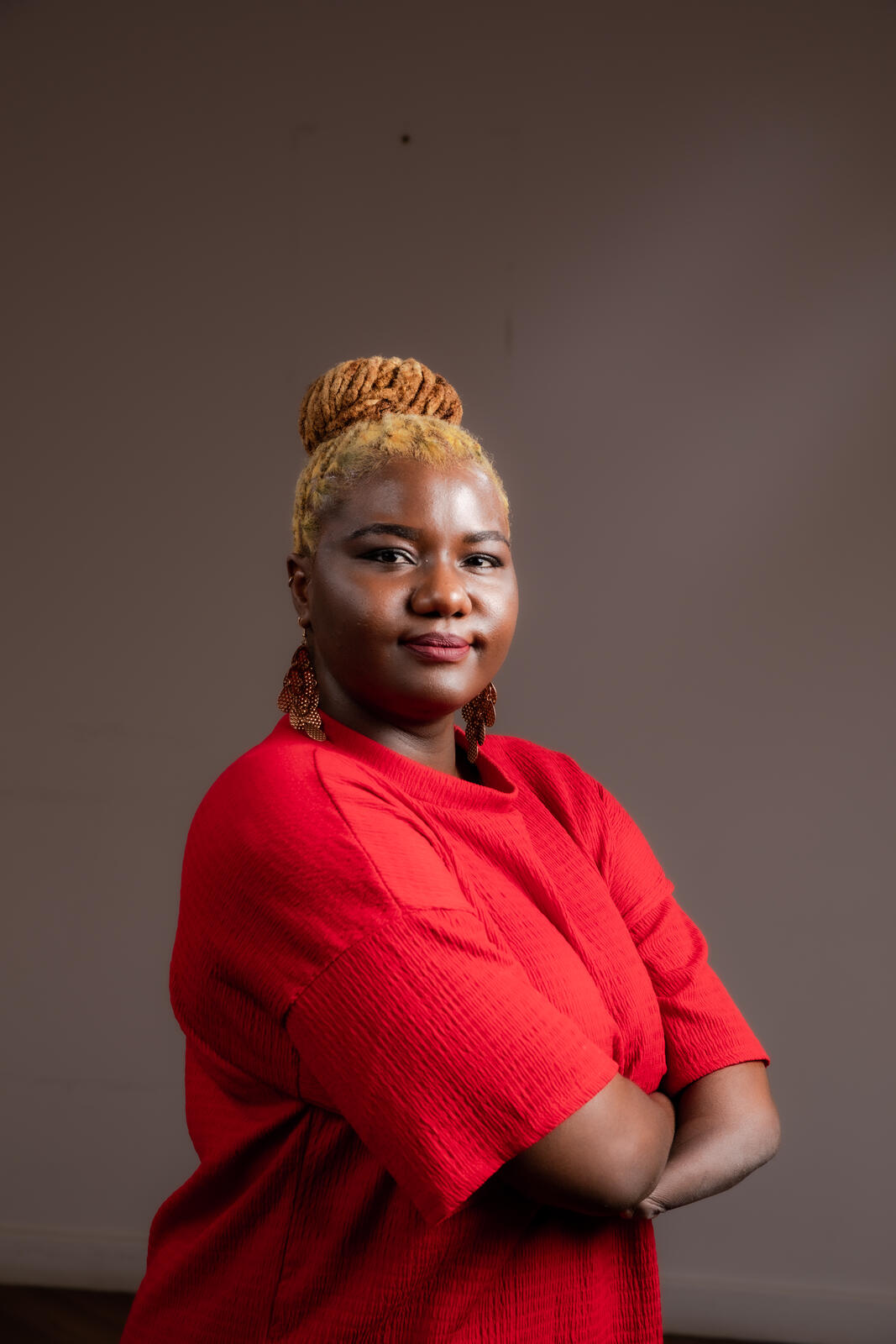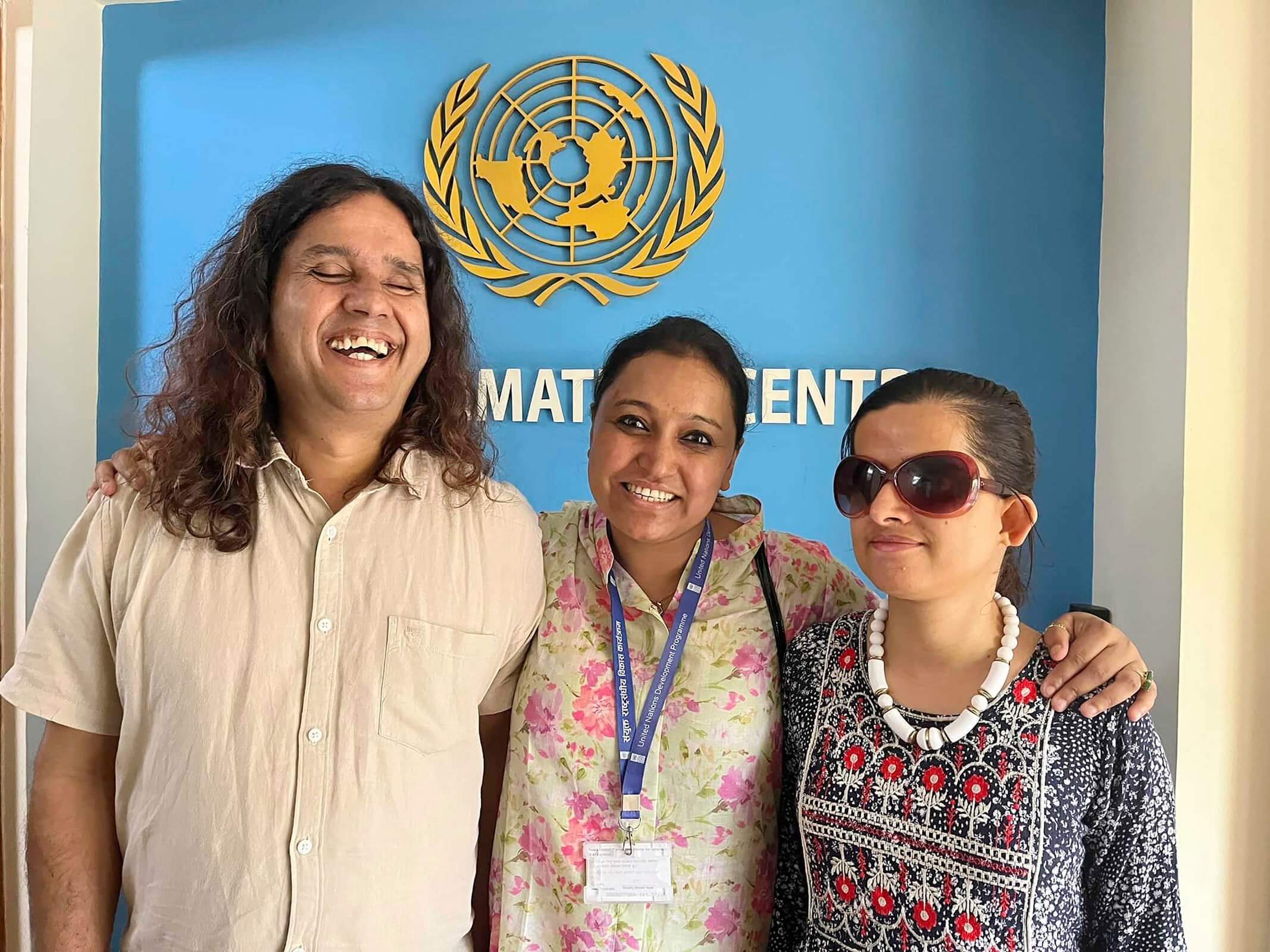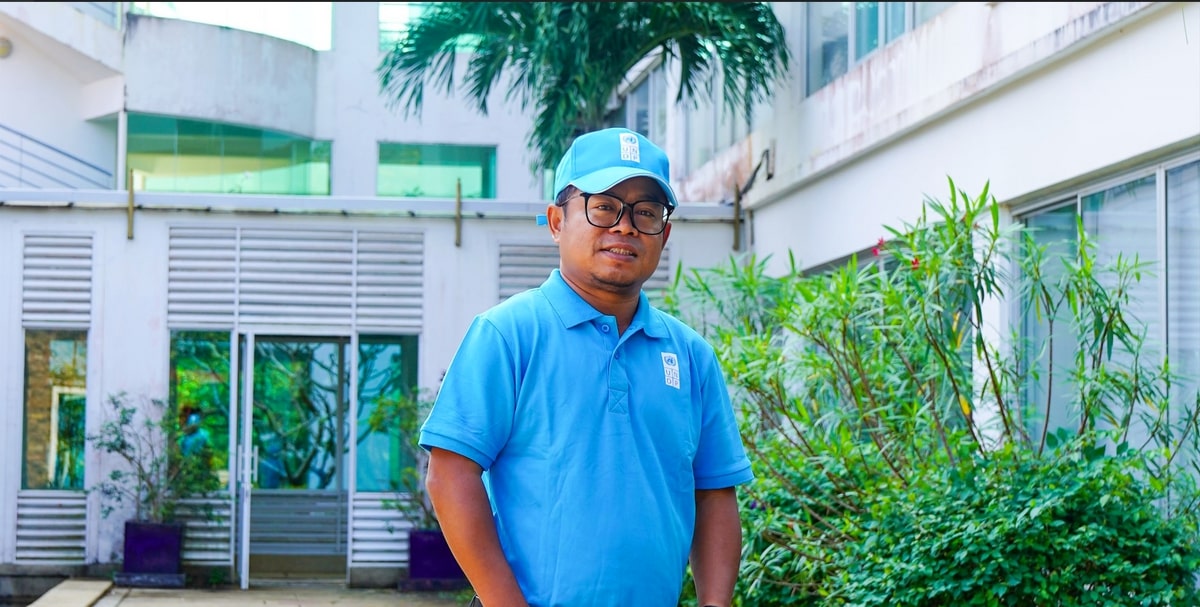

Rupmani Chhetri: Personifying nothing is impossible
Rupmani Chhetri says, “Like any other person, I like going out, hanging out with my friends, eating, having a cup of coffee.” However, growing up in India with a hearing disability was a daily battle of misunderstandings and isolation for her. As the only person with hearing impairment in her family, every attempt at communication became a struggle. This is Rupmani’s story.
Rupmani's school became a place where efforts to express herself through sign language were met with punishment from teachers who failed to recognize her disability. She is hearing impaired. Feeling isolated and unheard, it was only after moving to Delhi that Rupmani found a strong deaf community.
Through learning sign language, Rupmani felt a surge of empowerment, and a desire to help other deaf women develop a voice in society, and believe in themselves.
In 2017, she moved to Ukraine as a UN Volunteer Communications Assistant with the United Nations Development Programme (UNDP) for a year and a half.
Motivated to bring a change, Rupmani started her UN Volunteer journey with the aim of establishing a cross-cultural dialogue and exchange of knowledge between Ukraine and India.
When she moved to Ukraine, she was met with scepticism, as people were surprised that a deaf person could work for the UN.
Rupmani’s response – “Never think something is impossible”.
As a Communications Assistant, she supported the internally displaced people of the war that took place in 2017. She conducted sign language courses for teenagers and adults with hearing impairment. She did the same for UN colleagues in Ukraine, Germany and India.
Rupmani also created videos that summed up the UNDP Human Development Report of 2017 and introduced the Sustainable Development Goals in sign language.
“Through the (2017) war, some people had acquired disabilities or become injured, including around 300 deaf people who had become displaced. They were asking me, as a fellow deaf person, for help. I was not really aware how to help, so I had a lot to learn, especially how to deal with post-traumatic stress disorders. Deaf people wanted to tell me their stories and what they went through. By being able to communicate with me, I was able to give them a message of love and reassurance.”
Rupmani took part in multiple initiatives with UN agencies including the Office of the United Nations High Commissioner for Human Rights (OHCHR), The United Nations Children’s Fund (UNICEF) and the United Nations Refugee Agency (UNHCR).
Through her advocacy, she became the voice for persons with disabilities in Ukraine and helped bring the topic of disability to the mainstream conversations.
Following her UN Volunteer assignment, she cofounded SignAble Communications in Bangalore, India, which provides the services of sign language interpreters to enable participation and inclusion.
This article was produced with the kind support of Abbey Gibson, Online Volunteer. Find out more on how to volunteer online or engage Online Volunteers.



